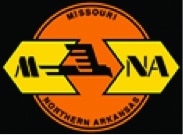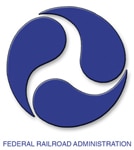
General Chairperson Steve Simpson and 1st Vice General Chairperson Scott Chelette assisted by Vice President Doyle Turner in the negotiations and ratification of the agreement for G0 927. Local 303 Chairperson Ryan Tabor and Vice Local Chairperson Justin Nozar played a large role in the preparation of the Section 6 notice, providing valuable information regarding the members’ wants and needs on the property.
The new agreement provides a signing bonus as well as a 14 percent raise over five years, a guarantee of 11 paid holidays and additional vacation days for all members.
Tag: maintenance of way

The testing rates will continue to be 25 percent of covered service employees for drug testing and 10 percent of covered service employees for alcohol testing.
As per a recent final rule, maintenance-of-way (MOW) employees will become subject to the FRA random drug and alcohol testing beginning June 12, 2017. Since the FRA does not yet have data on MOW employees, testing rates for MOW will be set at 50 percent for random drug testing and 25 percent for random alcohol testing for the period starting June 12, 2017, through Dec. 31, 2017.
Click here to read the official notice from the FRA as published in the Federal Register.
Separate rules increase protections, add Maintenance of Way workers to drug and alcohol testing policy

“Clear communication, multiple layers of safety and a rigorous alcohol and drug testing policy are critical to keep workers along and near tracks—and ultimately passengers and train crews—out of harm’s way,” said U.S. Transportation Secretary Anthony Foxx. “These are common sense rules that will help make our railroads safer.”
The Roadway Worker Protection final rule amendments will: (1) resolve different interpretations that have emerged since the rule went into effect nearly 20 years ago; (2) implement FRA’s Railroad Safety Advisory Committee’s (RSAC) consensus recommendations; (3) codify certain FRA Technical Bulletins; (4) codify a FAST Act mandate by adopting new requirements governing redundant signal protections; (5) address the safe movement of roadway maintenance machinery over signalized non-controlled track (not under a dispatcher’s control); and (6) amend certain qualification requirements for roadway workers.
The latest amendments require that job briefings include information for roadway worker groups on the accessibility of the roadway worker in charge; set standards for how “occupancy behind” train authorities (when the authority for a work crew does not begin until the train has passed the area) can be used; and require annual training for any individual serving as a roadway worker in charge.
In addition to the existing requirement to have a primary means of protection by establishing working limits and a requirement that all affected roadway workers be notified before working limits are released, FRA’s rule changes will now require another level of redundant signal protection.
“These new rules add another layer of protection for workers who work along and near railroad tracks and will help us reduce preventable worker injuries and fatalities,” said FRA Administrator Sarah E. Feinberg.
In response to both a congressional mandate and a National Transportation Safety Board (NTSB) recommendation, FRA is broadening the scope of its existing drug and alcohol testing regulation to cover MOW employees. Currently, a MOW employee is only drug and alcohol tested when he or she has died as a result of an accident or incident. MOW employees will now be fully subject to FRA’s drug and alcohol testing that includes random testing, post-accident testing, reasonable suspicion testing, reasonable cause testing, pre-employment testing, return-to-duty testing and follow-up testing.
“Whether you are an engineer, conductor or someone working alongside the tracks, safety requires alertness. Any reduction in awareness caused by drugs or alcohol use can often be the difference between life and death,” Feinberg added.
The Control of Alcohol and Drug Use rule, which also clarifies interpretations since the testing rule went into effect in 1986, includes other substantive changes. In response to another NTSB recommendation, the rule changes will now allow drug testing of railroad and MOW employees that are believed to have caused an incident at a railroad crossing.
The final Roadway Worker Protection rule is effective April 1, 2017. The Control of Alcohol and Drug Use goes into effect one year after publication.
Read the rules:

The Federal Railroad Administration (FRA) proposed new testing requirements for railroad track workers in July but said Wednesday (Sept. 24) it is extending the comment period at the request of industry groups.
Read the complete story at The Hill.